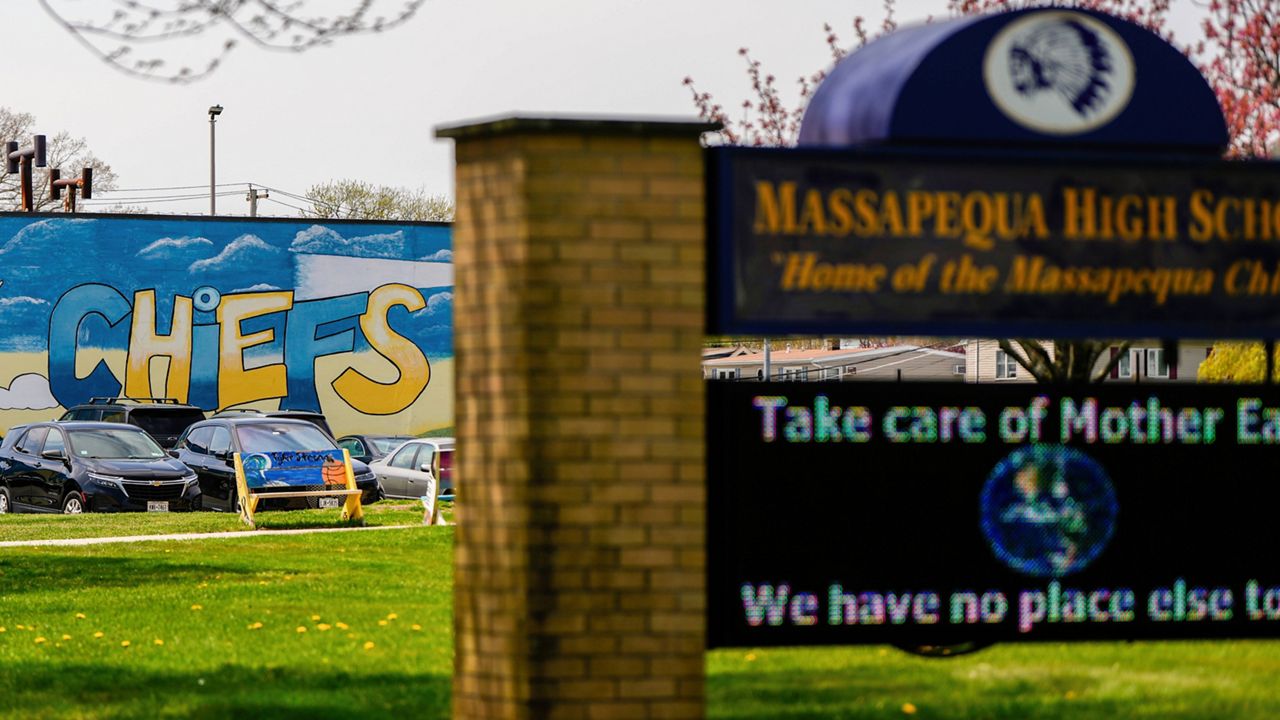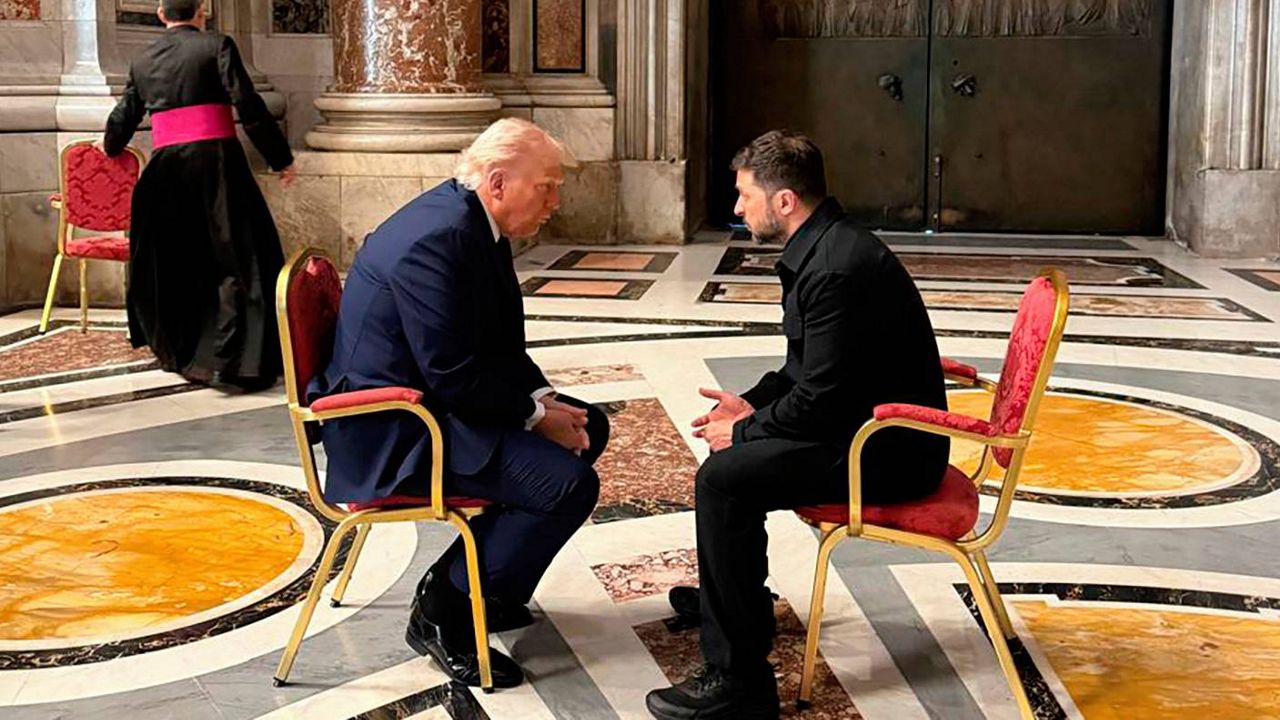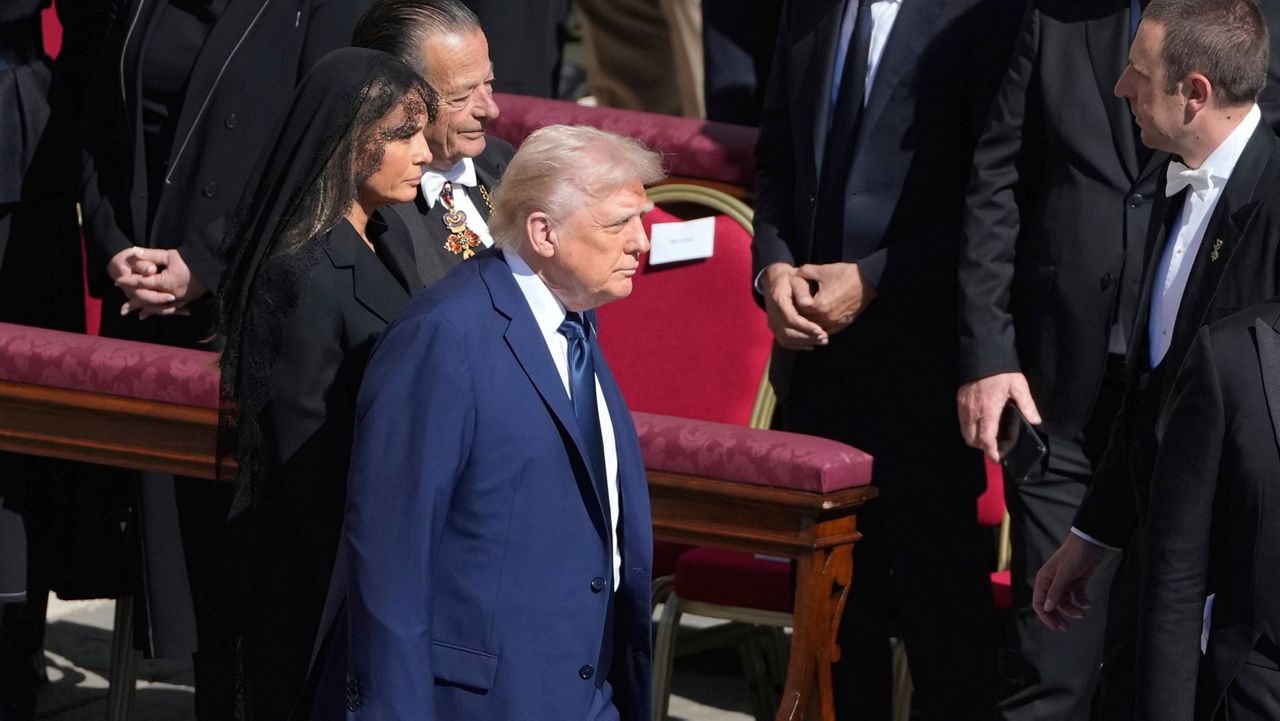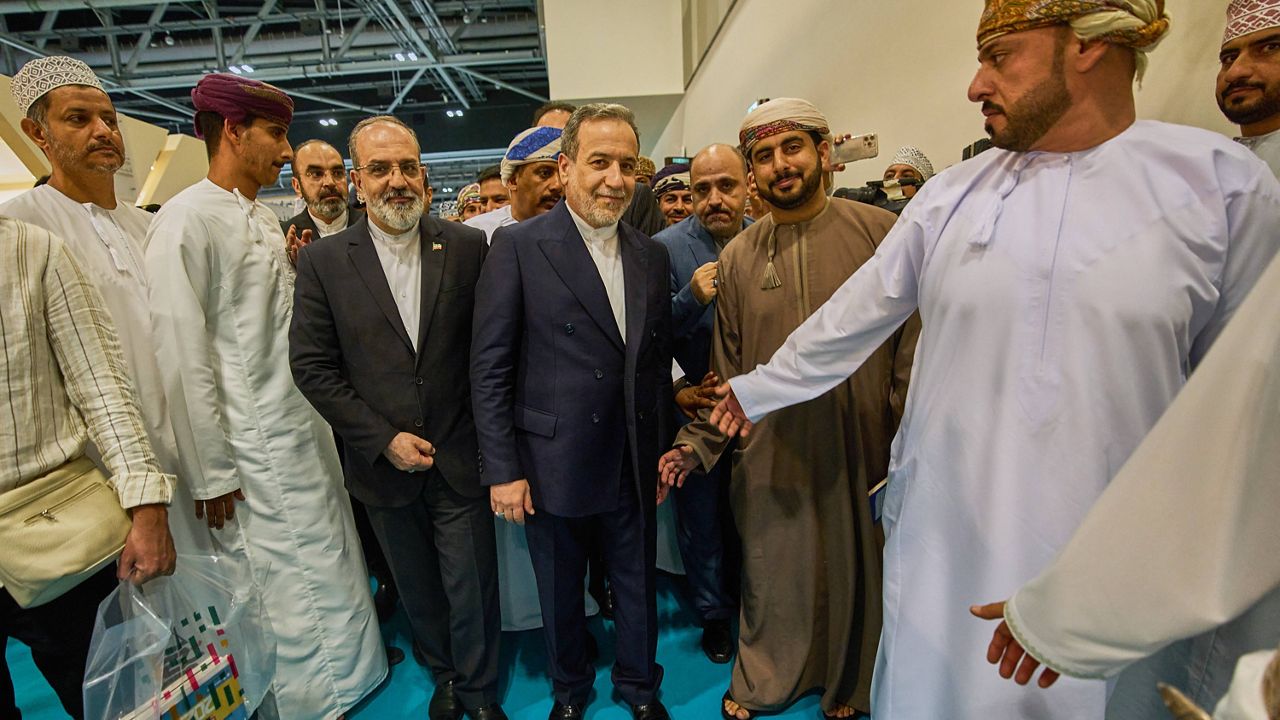Twenty-three months to the day since they clashed with a mob of Donald Trump supporters, U.S. Capitol and Washington police on Tuesday received Congress’ highest honor — Congressional Gold Medals.
What You Need To Know
- Top House and Senate leaders on Tuesday presented Congressional Gold Medals to U.S. Capitol and Washington police recognizing the hundreds of officers who were at the Capitol on Jan. 6, 2021
- “Your valor on that dark day is the stuff of legend,” said House Speaker Nancy Pelosi, D-Calif.
- Dozens of the officers who fought off the rioters sustained serious injuries, and five officers died following the attacks, four by suicide
- The medals will be placed in four locations — at U.S. Capitol Police headquarters, the Metropolitan Police Department, the Capitol and the Smithsonian Institution
Top House and Senate leaders presented the medals during a ceremony in the Capitol Rotunda. The awards recognize the hundreds of officers who were at the Capitol on Jan. 6, 2021.
“Your valor on that dark day is the stuff of legend,” said House Speaker Nancy Pelosi, D-Calif. “ … Today we award them the Congressional Gold Medal forever etching their heroism, into our history.”
As Congress convened to certify Joe Biden’s win in the 2020 presidential election — and just after then-President Donald Trump repeated false claims about widespread election fraud at a nearby rally and directed his supporters to march to the Capitol — rioters fought police and stormed the building, sending lawmakers scrambling to secure locations. More than 900 people have been charged with crimes on Capitol grounds, including seditious conspiracy; obstruction of an official proceeding; and assaulting, resisting or impending officers using a dangerous weapon.
Dozens of the officers who fought off the rioters sustained serious injuries. As the mob of Trump's supporters pushed past them and into the Capitol, police were beaten with American flags and their own guns, dragged down stairs, sprayed with chemicals and trampled and crushed by the crowd. Officers suffered physical wounds, including brain injuries and other lifelong effects, and many struggled to work afterward because they were so traumatized.
“For many of the officers with us, today’s ceremony is the first time they have returned to the Capitol complex,” Metropolitan Police Chief Robert Contee said. “Many of us still carry the physical, mental and emotional scars after that mob of thousands launched the violent assault in an attempt to halt the counting of electoral ballots.
“The sound of metal poles and other objects striking the bodies, helmets and shields may still ring loudly. The air still thick with bear spray and other chemicals, making it difficult for our officers to see and breathe. The calls for your fellow officer to be harmed just as loud as the day that this occurred. But there is hope because through adversity comes growth, and we continue to grow together and deliver excellence to our community.”
Four officers who testified at a House hearing last year spoke openly about the lasting mental and physical scars, and some detailed near-death experiences.
Metropolitan Police Officer Daniel Hodges described foaming at the mouth, bleeding and screaming as the rioters tried to gouge out his eye and crush him between two heavy doors. Metropolitan Police Officer Michael Fanone, who rushed to the scene, said he was "grabbed, beaten, tased, all while being called a traitor to my country." Capitol Police Officer Harry Dunn said a large group of people shouted the N-word at him as he was trying to keep them from breaching the House chamber.
Senate Majority Leader Chuck Schumer, D-N.Y., said the efforts of police defending the Capitol “undoubtedly saved lives.”
“Whether it was holding the line on the lower west terrace or leading insurrectionists away from the Senate chamber or acting quickly to protect members and staff, history will forever note that on Jan. 6 democracy lived on because of them,” said Schumer, who narrowly avoided being confronted by the insurrectionists as he was being escorted to safety on Jan. 6, video shows. “Today, we are here to say thank you. Thank God for you.”
Senate Minority Leader Mitch McConnell, R-Ky., noted that Congress was able to resume certifying the election results later that night.
“Because of your bravery and professionalism, Congress finished our job that very night,” he said. “Because you honor your oaths to support and defend the Constitution, we were able to honor ours.
“Thank you for having our backs. Thank you for saving our country,” he added.
House Minority Leader Kevin McCarthy, R-Calif., said the medals not only honor the Capitol and Washington police for protecting the country on Jan. 6, but also “the brotherhood of law enforcement.”
“Days like today forces to realize how much we owe that thin blue line,” he said. “We're forever indebted to them for their heroism. Today we take an important step towards repaying the debt by presenting them a Congressional Gold Medal. As Congress' highest honor, this award says that the service and sacrifice these officers will not be forgotten.
“I hope every American will see this award and feel the gratitude for every law enforcement officer who answered the call of duty every day, but especially the Capitol Police and D.C. officers on Jan. 6,” McCarthy said.
The medals will be placed in four locations — at U.S. Capitol Police headquarters, the Metropolitan Police Department, the Capitol and the Smithsonian Institution.
“Today’s ceremony means a great deal to the entire United States Capitol Police Department,” Capitol Police Chief Tom Manger said. “I appreciate the fact that Congress is acknowledging the courage and strength and resiliency of each and every member of the United States Capitol Police, sworn and civilian.”
Manger added that Jan. 6 “was a day unlike any other in our nation’s history. And for us, it was a day defined by chaos, courage, tragic loss and resolve.”
At least nine people who were at the Capitol that day died during and after the rioting, including a woman who was shot and killed by police as she tried to break into the House chamber and three other Trump supporters who suffered medical emergencies. Two police officers died by suicide in the days that immediately followed, and a third officer, Capitol Police Officer Brian Sicknick, collapsed and later died after one of the rioters sprayed him with a chemical. A medical examiner determined he died of natural causes.
Several months after the attack, in August 2021, the Metropolitan Police announced that two more of their officers who had responded to the insurrection had died by suicide. The circumstances that led to their deaths were unknown.
The June 2021 House vote to award the medals won widespread support from both parties. But 21 House Republicans voted against it — lawmakers who had downplayed the violence and stayed loyal to Trump. The Senate passed the legislation by voice vote, with no Republican objections.
The Congressional Gold Medal, the highest honor Congress can bestow, has been handed out by the legislative branch since 1776. Previous recipients include George Washington, Sir Winston Churchill, Bob Hope and Robert Frost. In recent years, Congress has awarded the medals to former New Orleans Saints player Steve Gleason, who became a leading advocate for people struggling with Lou Gehrig's disease, and biker Greg LeMond.
Signing the bill at the White House last year, Biden said the officers' heroism cannot be forgotten.
The insurrection was a "violent attempt to overturn the will of the American people," and Americans have to understand what happened, he said. "The honest and unvarnished truth. We have to face it."
The ceremony comes as Democrats, just weeks away from losing their House majority, race to finish a nearly 18-month investigation of the insurrection. Democrats and two Republicans conducting the probe have vowed to uncover the details of the attack.
Awarding the medals was among Pelosi's last ceremonial acts as she prepares to step down from leadership.









